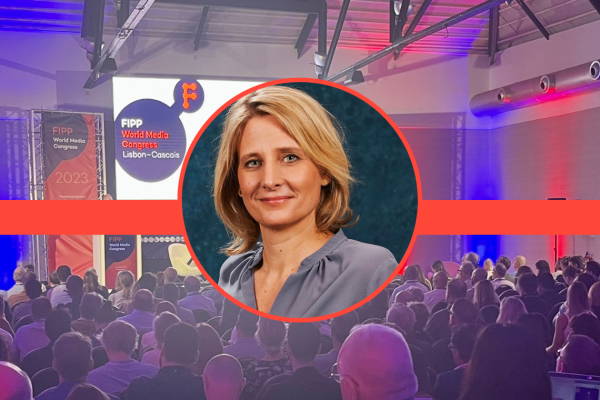The art of creating a compelling political podcast: lessons from Zeit Online’s “Das Politikteil”
When the German newspaper Die Zeit launched its political podcast, Das Politikteil, in March 2020, Angela Merkel had just sent the country into Covid-19 lockdown.
In the febrile atmosphere of the early pandemic, Das Politikteil quickly reached 20,000 downloads and streams per month. The team behind it realised they had hit upon something – and three years later, as of April 2023, that number has jumped to 750,000, with most listeners based in German-speaking countries.
The most popular episodes are mostly about one thing: Ukraine, Ukraine, Ukraine.
“Foreign affairs really sell,” Ileana Grabitz, head of the department of Politics, Economics and Society at Zeit Online and co-host of Das Politikteil, told an audience at FIPP Congress.
National weekly left-liberal newspaper Die Zeit was founded in 1946, and today has 1.95m readers. Its much younger sister publication, Zeit Online, has an editorial team of its own and a different thematic focus, as well as a younger audience. It was a team of journalists from both arms of the paper that decided to launch Das Politikteil, despite having no training in audio or radio broadcasting.
“We didn’t set any milestones, we just wanted to survive!” Grabitz explained in conversation with Christian Kallenberg, owner of We Like Mags and publisher of POP Rocky.
The podcast is not broadcast live, although there have been around 10 live episodes as part of podcast festivals, and is relatively low-tech to produce.
“It takes much more work to make a live-streamed version of a podcast,” said Grabitz. “It also takes a lot of the tension out of recording, so we can have a more authentic atmosphere with teasing and laughing.”
While they knew they wanted the podcast to feature guests, one principle they had from the start was: no politicians.
“With politicians, there’s a risk that they take the platform and say what they want to say. We don’t want them to simply broadcast their own agenda,” said Grabitz.
Instead, Das Politikteil offers a one-hour deep dive into complex political topics with experts of different kinds, from doctors to sinologists. “We wanted to learn with our listeners,” said Grabitz.
They try to pick one story with a USP, and have guided questions and different segments to structure the hour. Some segments that are particularly popular are where guests bring along a sound that prompts discussion in relation to a given topic, and also the “flop five”: five phrases a guest just cannot stand to hear any more.
The Das Politikteil audience is engaged, expressing their (sometimes disapproving) reactions after each episode. “We actually tried to phase out one segment, but dozens and dozens of people wrote to us asking us to keep it,” said Grabitz. “And we improve from episode to episode, because the audience will send emails with strict feedback.”
Zeit Online now has 26 podcasts in its roster. What does Grabitz make of their success? “Being backed by a big brand certainly helps!” she said. “But the audience we reach is totally different to that of Die Zeit or of Zeit Online – which are still parallel universes, ie., not integrated.
“What we can do via the podcast is to really get through to new, younger audiences. Even though it can be hard to convert them to paying subscribers, in this respect podcasts really are a win-win.”
More from the FIPP Congress:
- FIPP World Media Congress kicks off in Cascais
- AB World’s Angie Byun on how to tap into the massive popularity of South Korean content
- How TMB is combining innovation with 100-year-old values for success in the media landscape
- “We are the original storytellers of what is newsworthy”: Juan Señor calls on media companies to have confidence in an AI-driven landscape
- Part of History: How National Geographic Historia is bucking print trends across continents











